A Sweetheart’s Breakfast: Oatmeal Whole Wheat Pancakes and Homemade Pancake Syrup
The heart bone’s connected to the stomach bone
We don’t eat pancakes too often anymore, but for Valentine’s Day breakfast I’ll be serving these luscious oatmeal pancakes to my hubby. After all, the way to a man’s heart is through his stomach, right? Even after 34 years of marriage, this still holds true for my sweetheart.
A healthy alternative pancake syrup
The syrup I serve with pancakes is a concoction I came up with when the price of organic maple syrup went through the roof. The best price I’ve found for organic maple syrup is $17.99 (quart) at Whole Foods (their own 365 brand). But even at that, it was prohibitive for my budget. So I punted.
 My “maple” flavored syrup, costs about a third of organic maple syrup and its’ simple to make. Granulated coconut palm sugar is the base (the one I like is SweetTree Organic Unrefined – High Nutrient Blonde Coconut Palm Sugar).
My “maple” flavored syrup, costs about a third of organic maple syrup and its’ simple to make. Granulated coconut palm sugar is the base (the one I like is SweetTree Organic Unrefined – High Nutrient Blonde Coconut Palm Sugar).
Palm Sugar – Nutritionally Dense
One of the great things about this sweetener, besides the cost, is that it is a healthier choice than maple syrup and many other sugars as well. Coconut palm sugar is made from the sweet flower blossom nectar of the green coconut tree, coco nucifera, and contains lots of minerals and other nutrients. The nectar is boiled and then dried and granulated.
A sustainable sweetener
Another advantage is that this sweetener is an ecologically sound product. A blurb from the back of the package states, Tropical palms are an ecologically beneficial tree crop that grow in diverse, wild-life supportive agro-ecosystems, restore damaged soils and require little water. The Food and Agriculture Organization (FAO) has reported that palm sugars are the single most sustainable sweetener in the world.
Other uses for coconut palm sugar syrup
Whatever you’d use raw honey, organic maple syrup, stevia, or regular sugar for…this syrup can serve as a substitute. We use it for smoothies, for sweetening whipped cream, yogurt, baked oatmeal, etc. Use it as you would use organic maple syrup. It is just about the same consistency.
An Addendum: One sweetener I won’t use
I thought I should add just a little info about a sweetener that is currently labeled as healthy. Recent research has disclosed the truth about this so-called healthy alternative sweetener, however.
Of course, as some of you may know, I am referring to agave nectar. I used this syrup for several years and loved it. Easier to measure than honey, it became my favorite sweetener until I read this article from Dr. Joseph Mercola.

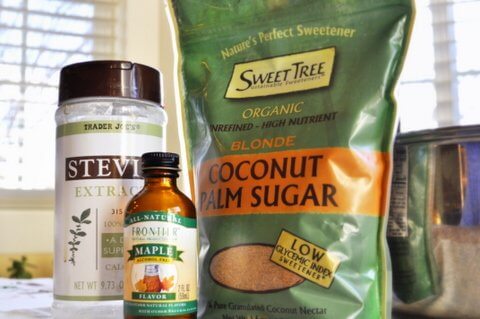
Coconut Palm Sugar Pancake Syrup Recipe
Ingredients
- 4 cups granulated coconut palm sugar
- 2 cups filtered water
- 1 tablespoon natural maple flavoring I use Frontier brand - see photo
- 1 tablespoon stevia extract or to taste optional
- pinch real sea salt
Instructions
- Combine all ingredients in a medium saucepan and heat just until sugar is dissolved (do not boil). Serve warm syrup over pancakes, waffles, etc.
Whipped Cream
For instructions about how to make whipped cream go here. This recipe was posted when I was still using organic maple syrup so just replace that with the palm sugar syrup, if desired.
How have you used coconut palm sugar? If so, how did you like it? What other healthy sweeteners have you used to replace regular white sugar?

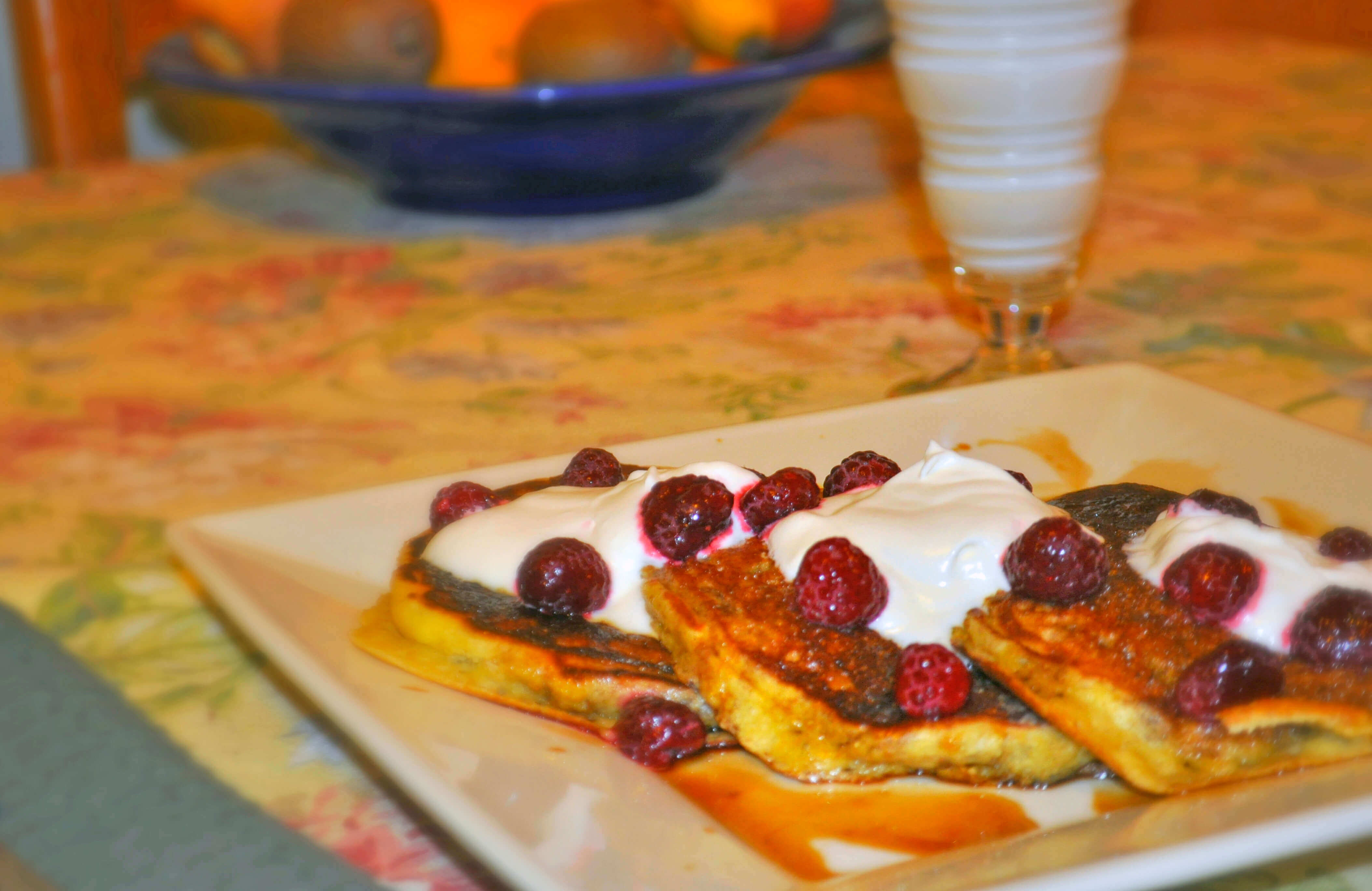
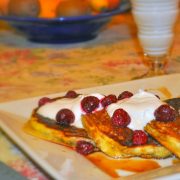
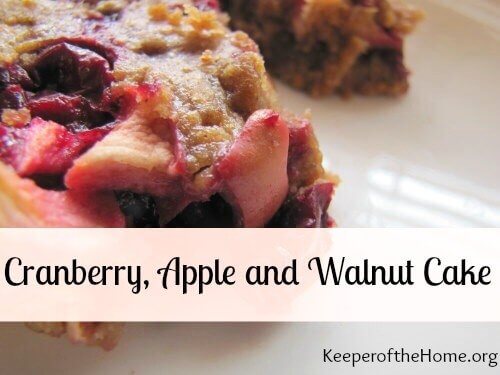
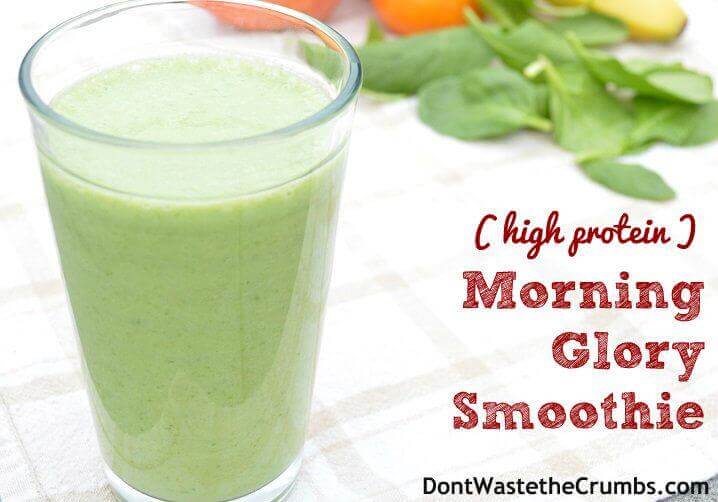
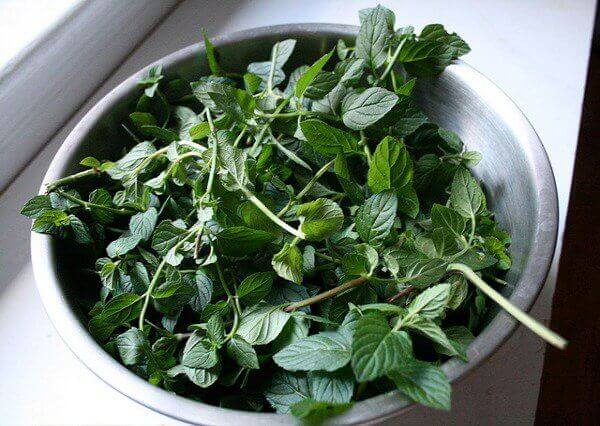
I’m curious if coconut palm has a strong coconut flavor. We’re having trouble with the transition to coconut oil, because EVERYTHING is overpowered by the coconut flavor. Although, we do like coconut milk in appropriate recipes.
Thanks for the link to agave. I was unaware!
@Christy, The Simple Homemaker, I don’t find it coconut tasting at all, personally. I quite like it! Similar to Sucanat, with that rich sort of brown-sugar, caramel kind of taste. At least, to me. 🙂
@Christy, The Simple Homemaker,
Of all the “brown” type sugars I’ve tried (Rapadura, Sucanat, etc.), coconut palm tastes the mildest (to me and my husband) and it is the lightest color of those brown sugars so it doesn’t show up as dark in the foods you combine it with.
I’ve never used coconut palm sugar. I’ll keep an eye out for it the next time I go to Earth Fare.
Is the coconut palm sugar allowed on GAPS, or is it a disaccharide?
@Melinda, It’s not allowed, unfortunately. I believe it is a disaccaride.
I love this!! Thank you for sharing!!
Recently I’ve tried grinding up dates in my food processor to use in place of sugars/sweeteners. I was really pleased with the results and I’m actually going to try it today to see if I can also use it instead of butter in a recipe that is already high in fats due to a bunch of nuts, etc. and to make it dairy free. I don’t know how cost efficent it is though.
I have a question: how do you choose the most versatile/affordable option amongst what’s on offer at Amazon by SweeTree/Big Tree Farms? In other words, what do YOU folks order? Thank you for this article. Our patient husbands, having seen us through the transition to traditional whole foods cookery will burst with pride when rewarded with a plate of sustainable!!!
This nudge is precisely what I’ve been looking for. We’ve switched away, first from cane sugar to honey and maple syrups, and though we’ll never be able to part with the art that is maple sugaring (especially after having read Jessica Prentice on sugaring in her book, Full Moon Feasts), I have been looking for something both sustainable and more nutritious. (For me, pouring sweetener into our muffins and oatmeal is like peering into a black hole. We made a promise to ourselves that as our budget dwindled, we’d make every vitamin and calorie work overtime!) We’ll visit maple sugaring families this spring, and who knows — maybe one day watch coconut climbers work their magic! Thanks again. GREAT synthesis of ideas, here.
I have never used this but I am curious as to why your recipe says baking soda WITHOUT aluminum. I thought that was only a concern with baking POWDER. I’ve only ever seen (and buy) baking powder without aluminum, I thought baking soda was all without it. Can you clarify please?
@Nola,
Thank you for the heads-up on the baking soda typo. You are right. the aluminium issue is only with baking powder. Oh well, as I often say, “If I only had a brain!”. Must have been a senior moment. I’ll change that now that you kindly brought my attention to it.
Thanks, Nola!
I love palm sugar…so much so that I’m just waiting for someone to discover that it really belongs on the “naughty” list. I buy it at my local asian market (it’s like a thick paste), scoop it all out into a glass container, and then use it for everything. The only thing I haven’t tried to use it as is powdered sugar. You can also buy it in chunks, and I bet if you applied a little elbow grease you could “powder” it in the blender…
I used agave nectar for a while until I discovered was no better than white sugar. I was just talking to my friend the other day about maple syrup. I haven’t tried it yet but she mixes organic molasses with honey. I thought that was a great idea and I will be trying it the next time I make pancakes or waffles.
I just recently bought some coconut palm sugar and loved it, but after buying it I read the information on the Tropical Traditions website saying that it was not a sustainable practice here http://www.tropicaltraditions.com/coconut_palm_sugar.htm. Do you have any more information on this type of sugar actually being a sustainable practice? I would like to research it a little more before buying more. Thank you for any information you can give.
@Albrey,
I just read the article (disturbing) and emailed SweetTree to ask how they answer the concerns expressed by Tropical Traditions. When I hear back, I will post the answer here in this article.
@Sharon,
Hello Again Albrey,
I already received a response from SweetTree farms and am including it in this email (I’d leave a link, but can’t get the web address off of the PDF file that was sent to me).
But first, it may be important to note that the brand of coconut palm sugar I referred to is a product of Indonesia, not the Philippines. As to whether that makes a difference or not, I am not sure. But I was somewhat satisfied after having read the response from SweetTree.
Below is the response:
“Question:
How sustainable is Coconut Sugar if harvesting the sweetener means that a grower can no longer harvest coconuts?”
“Answer:
SweetTree Coconut Sugar is the world’s most sustainable sweetener. Environmentally, Socially and Economically, Coconut Sugar simply stacks up cleaner and more equitably than any other sweetener we have ever seen (and that’s pretty
much all of them because we’re based in the humid tropics where the majority of these sweeteners are grown). What type of sweetener was recorded as the first source of sugar for humans? Coconut Sugar (and other palm sweeteners). What type of sweetener is used in multiple ancient healing traditions as a medicinal and daily tonic? Coconut Sugar. And what sweetener comes from a source which grows wild in diverse and healthy forest ecosystems? Coconut Sugar. The list of positives for why one should choose Coconut Sugar over other “mono-crop” grown options (cane, corn, agave, beet) literally goes on and on. Coconut palms are called the “Tree of Life” with reason; every part of the tree offers us a source of some form of sustainable nutrients or shelter; Coconuts, Coconut Milk, Coconut Water, Coconut Pith, Coconut Frond, Coconut Fibers, Coconut Flowers, Coconut Nectar, Coconut Oil…and the list goes on. In fact, the only comment we have ever heard questioning the greatness of Coconut Sugar is the idea that if you harvest coconut sugar you can no longer harvest coconuts. In fact this isn’t true at all. Coconuts produce inflorescences about every 3-4 months. What this means is that there are usually multiple flower stalks on a single tree..and what this means is that a grower of coconuts can actually choose to harvest sugar from one flower stalk and let the other stalk mature to coconuts.
Also it’s important to know that nothing in the world of coconut production is ever set in stone; If a grower chooses to produce coconut sugar from all the flower stalks produced by the tree and then 3 months later decides to produce all coconuts he need only wait for new flowers to emerge and he can let those grow to mature nuts. In fact, it should probably be said that the greatest danger to the continued production of coconuts in the tropics is the industry that uses coconuts! One of the reasons that coconut sugar has been so embraced by small farmers in our experience is because it offers a way out of the poverty experienced by these coconut growers when they sell their produce to the copra market (copra is dried coconut meat and it is used for coconut oil production…the largest market for coconuts on earth).”
“Question:
I really love using the Coconut Palm sugar and with our family of diabetes with my grandmother, it is wonderful to find such a healthier sugar alternative that works good with baking as well. I have a few questions if you can help. I know some companies that produce coconut oil from the Philippines do not get into the palm sugar market because they do not want to support coconut products that prevent coconut trees from bearing fruit (this would include “coconut sugar” because it is harvested from the flowering bud of the coconut tree.) This mainly because coconut trees in the Philippines have been on the decline for decades, and the coconut oil from coconuts is also now valued as a fuel source in bio-diesel production, resulting in less coconut oil availability as a food source each year. So just wanted to get your view on this as I understand that Sweet Tree gets theirs
from Indonesia and would not be involved in the decline of coconut trees in the Philippines? Also, is the sugar sourced from a different species of palm different from the species coconut oil is harvested from? Anyway, just had those thoughts as we try to make good decisions for our family on healthy alternatives for sugar and trying to keep supporting companies like yours and others that have the same ideals in helping the environment as well.
Thanks so much.
A customer”
“Answer:
While it is true that in most cases farmers feel they must choose to focus their coconut palm roduction on either coconuts OR flower nectar for the production of sugar and spirits, this is actually not accurate. In most cases (the productivity/age of
the palm being the variable) farmers can produce both crops in the same period by simply managing the inflorescences separately. Here in Indonesia, we have a small number of producers that choose to produce both coconuts and coconut sugar…the
jury however is still out on whether total yields are reduced through this style of management. Actually this system was first developed by the Philippine Coconut Authority. And as for companies in the Philippines not wanting to support coconut products that prevent palms from bearing fruit, I think this is far more directly related to an overarching concern by industry that small holders will find a more economically rewarding value addition opportunity than simply selling coconuts in bulk to a highly industrialized “oil” industry. Farmers (unless working in a Community
Processing Program which would likely be extremely small scale and fraught with management issues) probably do not get much of a benefit from the “highly valued” bio-fuel that is produced far from the farms. The production of finished goods by small-holders is an efficient albeit sometimes
risky way to bridge poverty alleviation and development needs with private entrepreneurialism. The farmers in our Indonesian program have increased their incomes by over 100% per month through the direct involvement and investment of Big Tree Farms in central processing facilities and educating markets around the world about this incredible sweetener…And these were farmers that had been producing traditional sugar well before we showed up! If we look at the value increase between selling coconuts to industry vs production of coconut sweeteners we’re up over 250%. This sweetener is one of the few truly sustainable ingredients in the world. We know that is a big statement, but we feel its deserved…in terms of people, health and
environment coconut sweeteners provide huge benefit every step of the way…Lifting communities out of poverty, bringing much needed minerals and vitamins into the human body in a mode (sweets) that often does just the opposite,
and in preserving rainforest, protecting fragile tropical biomes and indeed promoting the return of devastated land back to balance….As you can see…We are hooked.”
@Sharon, Wow, so much information! Thank you so much Sharon for checking on this and for posting the information. I really loved using the coconut sugar and will have to try the Sweet Tree brand! Thanks!
I should get my hubby to make these pancakes for me… I’ve been craving some and weekend breakfasts are usually his specialty. They look great and I’m curious about how the oatmeal tastes in them.
Wow, these look really delicious. Also the first time I’ve seen Coconut Palm Sugar.
I checked in my local health foods store for coconut palm sugar, and all they have is “coconut sugar” in the bulk bins. Is coconut sugar and coconut palm sugar the same thing? I am thinking so from reading that information you posted about the sustainability, but want to make sure.
Hi Stephanie, I’m a new reader, and I wanted to comment on how impressed I am by your site. I too have heard the negatives on agave, so I am steering clear of it as well. I actually have tried it and don’t feel well on it, so that adds to my avoidance. Anyhow, thanks for great recipes and great information!